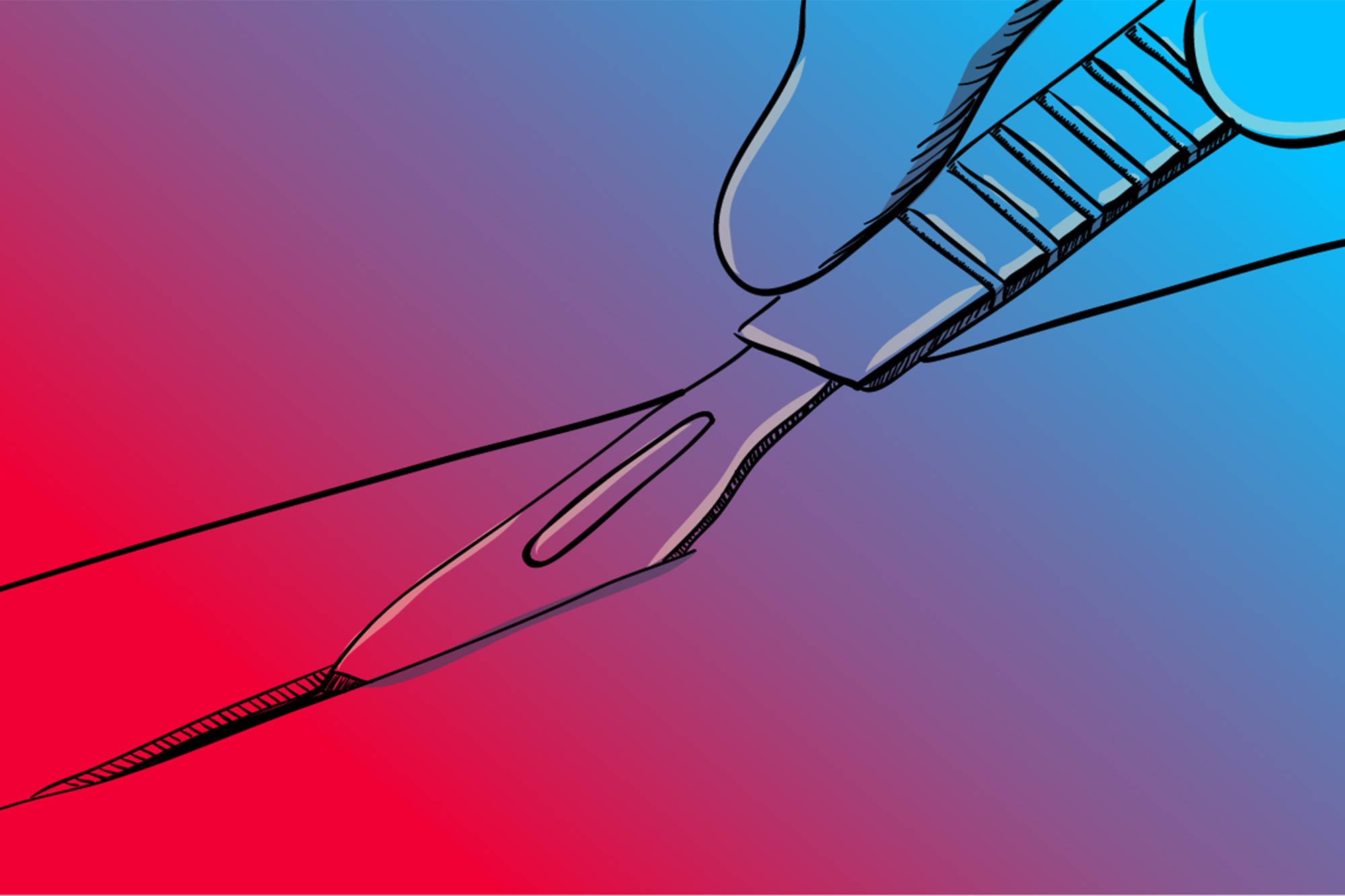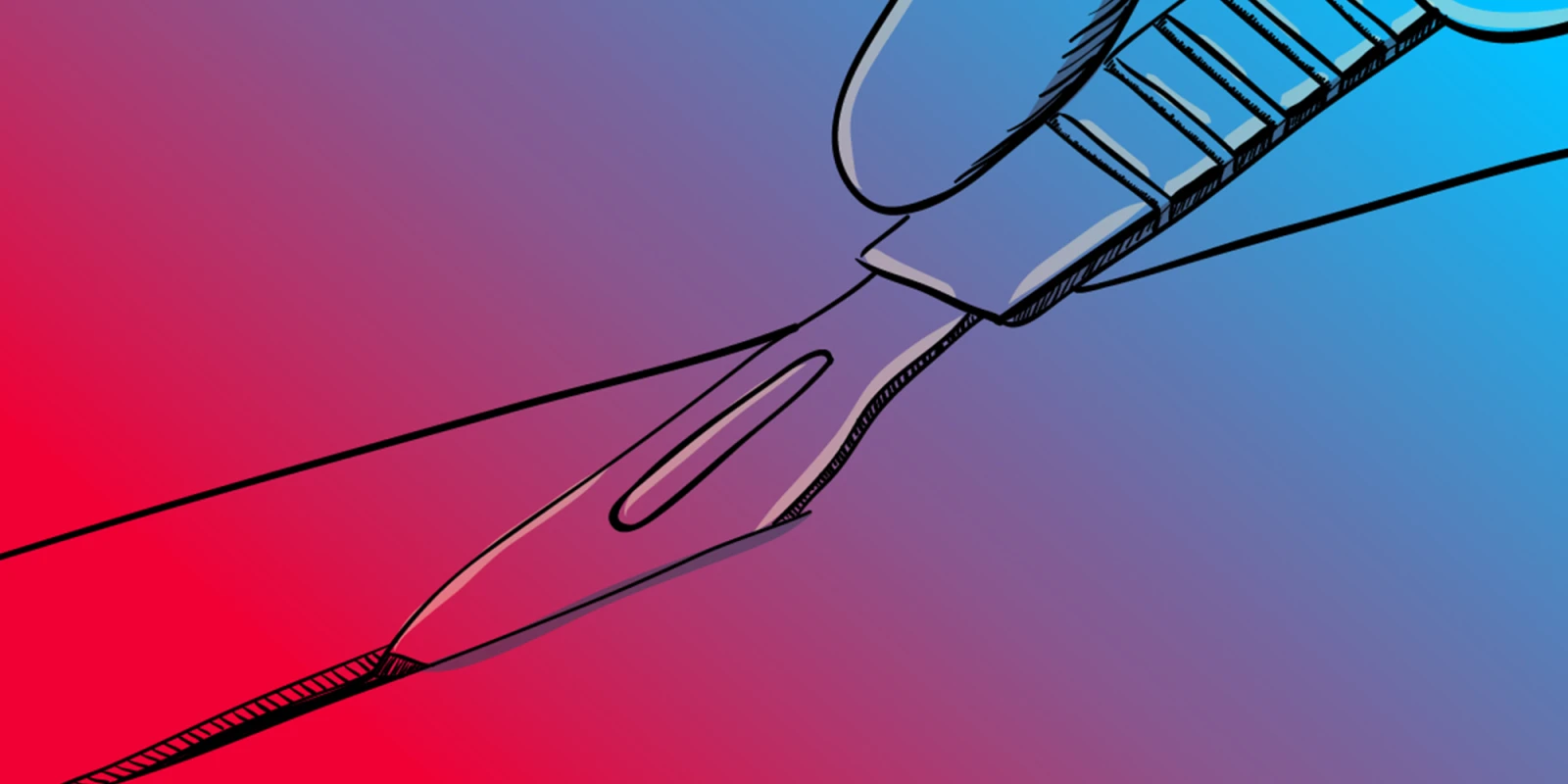
This is part of the Medical Humanities Series on Op-Med, which showcases creative work by our members. Do you have a poem, short story, creative nonfiction or visual art piece related to medicine that you’d like to share with the community? Send it to us here.
The lateral chest is the easel for my handiwork. I paint an orange sheen that glints off my patient’s chest as I prep and drape in standard sterile fashion. Round and round, from the center to the periphery. Once, twice — the third time’s a charm. I stare as it dries, throw the stick in the trash with a gratifying thwack.
It is strangely calming, the smell familiar and comfortable. My breath slows. I have eyes only for the perfect rectangle I have created with blue drapes framing orange skin. With razor focus on the painting, the world around me blurs. This is not something I really think about, but it happens like clockwork every time.
I create a perfect skin wheal and anesthetize in layers. I love to see a good dimpling of the skin. In fact I insist on it. Like a good introductory speech or an opening act, it heralds a consistent beginning, no matter what happens thereafter. The rest of the handiwork may vary — scalpel incisions, fluid aspiration, dissections, trocar and catheter insertions. Pushing, tugging, coaxing at the chest. Forcing it to bend to the will of a foreign device that it instinctively seems to resist. Glinting metallic objects storm the field. The tissues groan. Blood maligns the pristine orange.
A prickle on the back of my neck is an early warning sign; it alerts me before my brain actually processes a misstep. I try to remember to heed that prickle but there are times I am swept away in the heady rush of action. At times the tissues put up a fight but mostly they comply, resigned to their fate. Sometimes the handiwork is pretty with neat sutures lined up like a perfect train track. Other times it is a train off the tracks in a puffy, angry zigzag.
The room is always too warm, but I know it is not the room. It is just me and the sterile armor around me. The last bits of gauze secured under the dressing are always tinged with thoughts of the joy of freeing myself of its confines. Of that welcome deep breath of fresh air as the mask is removed, and the first cool sensation on exposed arms as the sweat dries instantly in the air conditioning. It is only then that I am aware of the hive of activity buzzing around me — people speaking, cell phones vibrating and ringing, the blip blip blip of the monitor, the rhythmic swoosh of the ventilator. The patient needs to be moved, woken up, and spoken to. Families are clamoring at the door.
The magic is over as quickly as it began. Where does time go? Why do good times feel so short, the mundane so long? My brain switches from that beautiful singular focus back to relentless, mind-numbing multitasking. I sigh and get back to normal life.
Tuhina Raman, MD, FCCP, is an interventional pulmonologist practicing at Thomas Jefferson University Hospital. Previously she studied medicine at the Hospital of St. Raphael, Thomas Jefferson University Hospital, and the University of Arkansas School of Medical Sciences. She is a member of the American College of Chest Physicians, the American Thoracic Society, and the American Association for Bronchology and Interventional Pulmonology.
Illustration by Yi-Min Chun






